Mel Faxon is the Co-founder of b. products, a sleep-wellness company in London. She is passionate about promoting education and transparency around cannabis in the UK, as well as furthering conversations around inclusiveness and sustainability in the industry.
Thank you so much for doing this with us! Can you tell us the “backstory” about what brought you to the cannabis industry?
Thank you so much for having me! I’m excited to talk with you guys.
I came to the cannabis industry a bit out of desperation actually. I have been a TERRIBLE sleeper for my entire life – night terrors to insomnia combined with being the lightest sleeper in the world. I’d tried everything – sleep aids, blackout shades, ear plugs, essential oils, pre-sleep stretch rituals – you name it, and nothing was helping. When someone suggested CBD as a way to help with my sleep issues, I tried it immediately. Fortunately, this is one of the few things that has made a difference in the way I sleep – and is also why b. products was born.
Can you share the most interesting story that happened to you since you began leading your company? Can you tell us what lesson you learned from that?
I had a call when we first launched with a consumer goods industry expert. I felt super confident going in and was excited to ask him for advice on some strategy for us moving forward. However, it quickly turned into one of those conversations where every question he asked made me feel like I knew absolutely nothing. And not in a mean way! He just poked so many holes in this story I’d been telling myself. The biggest issue he saw was that we hadn’t done nearly enough research on our customer segments and crystalized the problem we are trying to fix. For me, this was a great reinforcement that confirmation bias can be your downfall. When you’re getting started on launching your own brand – talk to as many people as you possibly can! Have people play Devil’s Advocate and tear your idea apart to see what you’re missing and where your strategy or data is weak and reinforce the areas where you’re doing things right.
Can you share a story about the funniest mistake you made when you were first starting? Can you tell us what lesson you learned from that?
Know who is actually buying your product! It turns out your target customer isn’t always your actual customer. We spent months drawing out our target customer and their values, likes, etc. and positioned our product to tailor directly to them. However, when we finally got in front of customers, it turns out we’d missed an entire category – menopausal women! Luckily, our branding and product spoke to them as well, but we now have a great opportunity to expand some of our channels and messaging to capture that audience too.
Do you have a funny story about how someone you knew reacted when they first heard you were getting into the cannabis industry?
When I first told my former manager that I was going to graduate from business school and start a cannabis company, he essentially just looked at me and was like, “So you moved to London to start selling drugs? Don’t you think there’s a better way to pay off your loans?” It’s a common misconception that people fully understand the industry, so it’s important to make sure people understand exactly what cannabis is and can be!
None of us are able to achieve success without some help along the way. Is there a particular person who you are grateful towards who helped get you to where you are? Can you share a story?
I’ve had a long-time mentor who is my stepmother’s best friend. I’ve always turned to her for career guidance. When I was finishing my MBA, I had to chose between accepting an offer from the company I interned at during school and starting my own company. Her advice was invaluable to me – she said that there was no better time for me to try something like this than right now – fresh out of school, full of energy and determination. She said there will always be a big tech company that I can go work for if this doesn’t work out, but if I don’t take this opportunity, the “what if” will plague me much longer than a year of not working for an established corporation.
Are you working on any new or exciting projects now? How do you think that will help people?
I am! We are days from launching our second product and we have a third product in the pipeline for release in early spring. We are a sleep-wellness company first and foremost, so our products will remain under that umbrella. Without saying too much, however, there are other activities that happen between the sheets before you fall asleep, and that may be where we are headed next 😉
Ok. Thank you for all that. Let’s now jump to the main core of our interview. Despite great progress that has been made we still have a lot more work to do to achieve gender parity in this industry. According to this report in Entrepreneur, less than 25 percent of cannabis businesses are run by women. In your opinion or experience, what 3 things can be done by a) individuals b)companies and/or c) society to support greater gender parity moving forward?
I think much like some of the initiatives being done with STEM companies, community and networks are a key element for getting more women involved in cannabis. As experienced businesspeople and leaders, individual women should reach out to each other and mentor others when they can. We need to consistently lift other women up with us for all of us to succeed.
A recent article by Bloomberg found that startups with at least one female founder were able to get 21% more funding than all male teams, but only 22% of startups have at least one female founder. And startups with all female teams only received 2.2% of the VC funding invested last year. Companies, and all of us, need to continue to fund initiatives led by women and to question what biases are driving this lack of funding for all-female teams.
You are a “Cannabis Insider”. If you had to advise someone about 5 non intuitive things one should know to succeed in the cannabis industry, what would you say? Can you please give a story or an example for each.
- Stigmas matter more than you think. In the UK, you’re dealing with stigmas surrounding cannabis still being associated with illegality, general discussion around mental health, and the reluctance to take supplements in general. Overcoming one of those is difficult – tackling all three together is very hard! Get in front of consumers as much as you possibly can as early as you can so you can learn what barriers you need to overcome and help educate against the stigmas.
- Education is key. Going off of my first point, especially as most people still have no idea what CBD even stands for in London, creating content and providing information for consumers to feel fully informed is crucial.
- The Culture here in the UK is different. A lot of what you read about in the US is the amazing community coming up around cannabis and how much change has happened in such a short time. We have a long way to go in the UK, and it’s up to founders, especially female founders, to create a network and support each other in the space.
- Network, network, network. Meet with as many people as you can as often as you can and grow your network. You never know what partnerships can come out of a simple LinkedIn introduction or the friend of a friend of a friend.
- Celebrate the small wins. It’s tough to be in this business! The lack of regulation in this relatively nascent industry that few people understand means you’ll have to fight every step of the way. It’s important to stop and congratulate yourself and your team whenever you hit a goal or get a good review. Recognizing the little wins makes dealing with the setbacks more tolerable.
Can you share 3 things that most excite you about the cannabis industry?
- The fact that women are leading the way with amazing brands and finding ways to help each other. There is a really cool brand here in the UK called Daye making CBD infused tampons – how awesome is that!? Women’s bodies have been neglected in medical research data for a long time – I think the CBD solutions specifically targeting women’s health needs are some of the most exciting brands in the industry right now
- The inpouring of funding into research around cannabis and its ability to help people. For so long, funding wasn’t available because of the illegal classification of cannabis. Now that funding is available, I can’t wait to see what new solutions come out of it.
- The UK cannabis industry is just getting started, and that potential is really exciting. There are many stigmas in the UK around mental health and cannabis, and I am hopeful that the rise of the cannabis industry will help break some of them down. Talking to our customers and acknowledging we all have stress and anxiety has been a gateway for them to feel comfortable talking back to us about those issues.
Can you share 3 things that most concern you about the industry? If you had the ability to implement 3 ways to reform or improve the industry, what would you suggest?
- The industry as it stands is still perpetuating racial and gender inequality in the US. The biggest beneficiaries of this new cash crop have been white men. Lyneisha Watson wrote an incredible article recently for Miss Grass talking about this – less than five percent of cannabis businesses are black-owned, while black Americans are four times more likely to be arrested for cannabis possession. Also, the 2018 Farm Bill, which legalized CBD across the US, had a stipulation that anyone with former marijuana charges is not allowed to participate in this industry. In 2018 alone, minorities made up almost 47% of drug-related arrests while only representing 31% of the population. All of these changes are reinforcing structural racism within the industry and contributing to this divide. While I am operating in the UK and I am not sure if the data exists yet as the industry is just getting started, I think it’s a pretty safe assumption to think that similar issues will be common here as well. I recently read Reni Eddo-Lodge’s Why I’m
- No Longer Talking to White People About Race, and it underscored that racial issues are just as pervasive in the UK as in the US, they just aren’t discussed in the same way. The rise of CBD as a “good” version of cannabis is pinning marijuana as a “bad” version. However, so many people see medical and mental benefits from THC. Because weed isn’t legal everywhere, this issue is reinforcing the problems I mentioned above. It’s also unfair to the people who simply prefer THC-full cannabis.
- The lack of regulation and standardization means that it’s very easy for anyone to enter the industry and to create products that are misleading and potentially unsafe to consumers.
How do we reform and improve the industry?
- As founders, maintain inclusive hiring practices and create partnerships that support women, LGBTQ+ and people of color
- Look for and/or create sustainable supply chains and practices
- Advocate and put money toward programs that support communities impacted by the War on Drugs
- UK specifically –
-Ensure that our brands, products, messaging, and pricing are inclusive and accessible
-Advocate for transparency and education surrounding what CBD/cannabis is, as well as standardization and regulation for cannabis products for consumer safety and benefit
-Make sure we know our suppliers and manufacturers end-to-end
What are your thoughts about federal legalization of cannabis? If you could speak to your Senator, what would be your most persuasive argument regarding why they should or should not pursue federal legalization?
I’m all for it. As I mentioned above, the people benefitting the most from the cannabis surge are people who have always benefitted. Federal legalization would not only give burdened communities a chance to overcome racial injustice, but would also flood money into the economy and alleviate burdens on prison systems. Similarly to the US, I think this is true in the UK as well, although we are way further off from this progression in the UK than in the States.
Today, cigarettes are legal, but they are heavily regulated, highly taxed, and they are somewhat socially marginalized. Would you like cannabis to have a similar status to cigarettes or different? Can you explain?
(Un)fortunately, in the UK cigarettes are everywhere, whereas cannabis is still considered hyper taboo. I think that cannabis could stand to be more regulated so that consumers have less risk with buying poor quality or inconsistent products. Especially since education around CBD is so low – I met a woman this past weekend who thought she had purchased 3000mg of CBD but was actually sold hemp seed oil which does not contain any CBD. Cannabis studies continue to show medical benefits, whereas cigarettes have been proven to be harmful. I wish we could switch out cigarettes with cannabis here, but I think there is a long way to go for that in the UK and Europe.
Can you please give us your favorite “Life Lesson Quote”? Can you share how that was relevant to you in your life?
“It doesn’t matter if the glass is half empty or half full. What matters is that you’re the one pouring the water” – Mark Cuban.
For me, this quote is a reminder that I have control over how I handle every situation that comes, and most of that comes down to framing or reframing that situation. If I don’t win a VC pitch or if a partnership falls through, I can reframe that as an incredible learning experience and a chance to do better the next time. It’s also a good reminder to celebrate when the glass feels full too – we are so hard on ourselves, especially as women, and it’s ok to look in the mirror in the morning and tell yourself how great you are doing and how far you’ve come.
You are a person of great influence. If you could inspire a movement that would bring the most amount of good to the greatest amount of people, what would that be? You never know what your idea can trigger. 🙂
If I could get everyone to stop using single-use plastic water bottles, and to bring their own reusable coffee cup with them every morning, I would call that a win. The planet is dying and we need to make single-use plastic more shameful than cigarettes.
Thank you so much for the time you spent with this. We wish you only continued success!


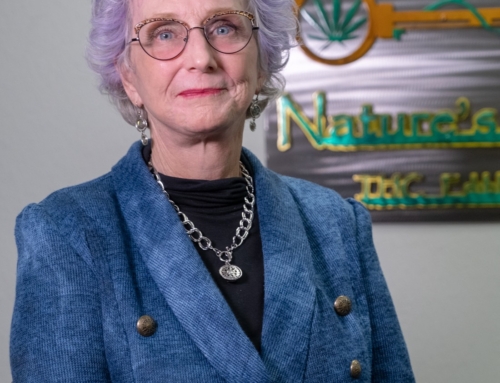
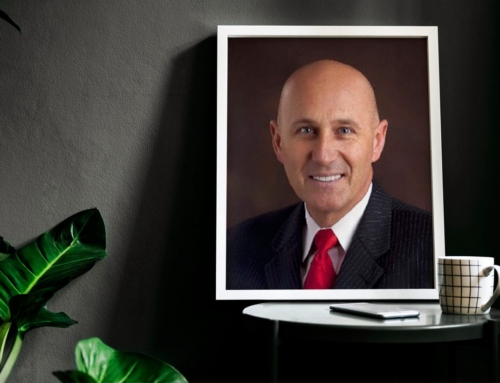
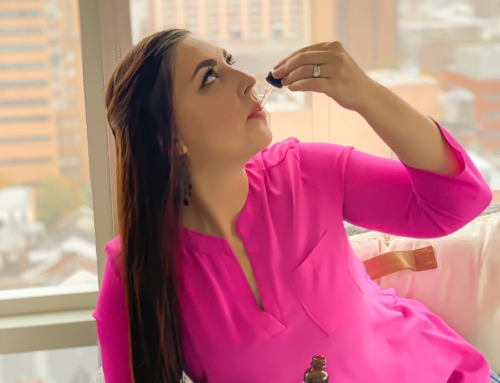

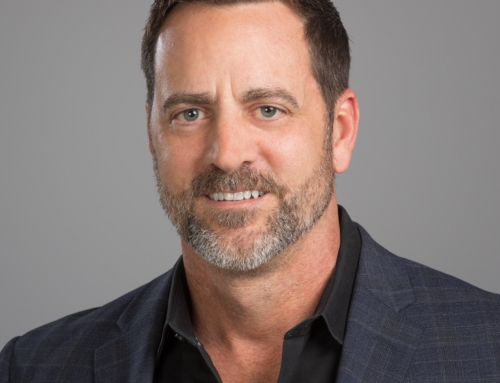
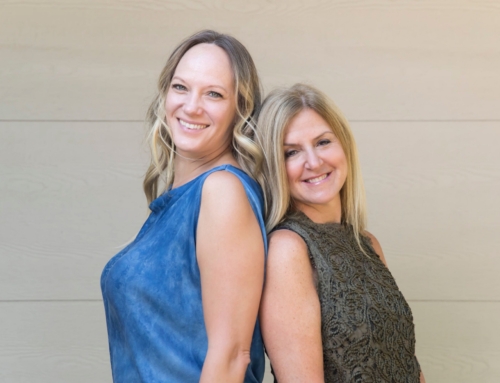
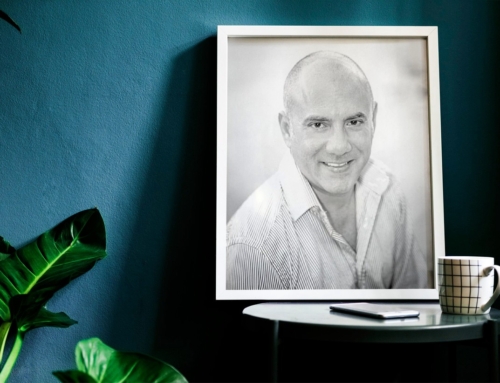
![“The potential to help people [in this industry] is enormous, but there’s still so much to learn.” – Ramon Alarcon, Witi](https://cf.lakesideremedy.com/wp-content/uploads/2020/12/1thj5ekUyxQ69iLz1JJyODg-scaled-e1607882756286-500x383.jpeg)
